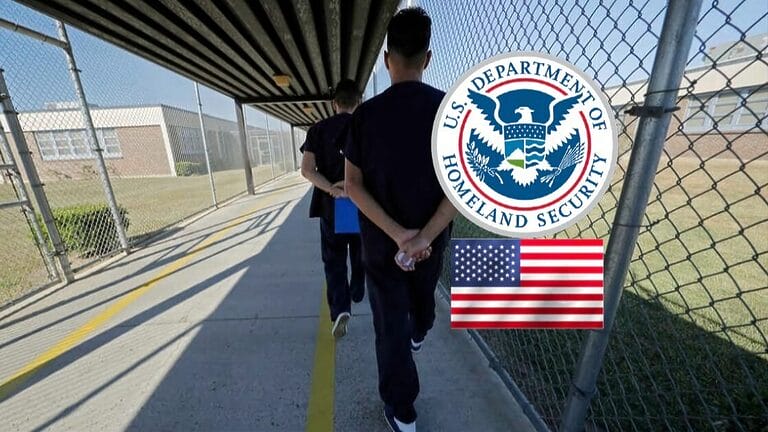Starting today, these immigrants will be prioritized for detentions and deportations, according to the report presented by the DHS.
The Department of Homeland Security (DHS) has prioritized the deportation of migrants who have not initiated any legal process to regularize their status in the United States. Among them, thousands of Cubans who arrived under the humanitarian parole program could now find themselves in a critical situation.
The decision by the Trump administration to cancel this program directly impacts over half a million migrants, including over 110,000 Cubans. Although many have already used the Cuban Adjustment Act to apply for residency, at least 26,000 would be exposed to immediate deportation.
The parole expires on April 24: thousands would be left unprotected.
Starting on April 24, 2025, those who arrived after April 2024 and have not yet met the one-year and one-day requirement to qualify for the Cuban Adjustment Act will lose the temporary status granted by parole.
Many were waiting for this deadline to start their residency process, but the abrupt suspension of the program could leave them in an immigration limbo. Most do not have any other benefit, such as Temporary Protected Status (TPS), also canceled by the current government, or a U visa.
In this scenario, immigration lawyers recommend applying for political asylum immediately, especially for those who have well-founded reasons for persecution in their home country. Those who are already in the process of adjustment, or who have a pending family or work residence petition, are not at immediate risk of deportation, but are advised not to leave the country under any circumstances.
Risk of exclusion and re-entry bans
One of the most concerning points is that the government is also considering implementing restrictions to prevent the reentry to the United States of those migrants whose parole has been revoked. This could even affect individuals who are already in the process of legalizing their status, if they leave the country before obtaining permanent residency.
Specialists suggest avoiding trips abroad, even for tourism, as an exit could result in the inability to re-enter.
Trump tightens measures, but receives support from Cuban-American figures
While immigration operations are being reinforced, some Cuban-American political figures have expressed their support for Trump's decisions. Congresswoman María Elvira Salazar stated that the president is "correcting the legal limbo" that, according to her, the Biden administration created.
On the other hand, Dariel Fernández, a tax collector in South Florida, supported the cancellation of parole, although he requested a case-by-case analysis. "You can't treat those fleeing dictatorships the same as those who don't have legitimate reasons to migrate," he said.
DHS warns: those who have not completed procedures are in the spotlight
According to the Department of Homeland Security, priority will be given to the expulsion of those who have not initiated any legal process, such as asylum applications, adjustment of status, TPS, or family petitions. Those who do not have legal sponsors or employers to support them with a work visa are also at risk.
Cubans who only had parole and have not acted legally during this time are now at the greatest risk. Many still do not know the steps they must follow and could be detained at any time.
What should the affected people do?
Experts insist that the key is to act quickly. The first step should be to consult a reliable immigration lawyer and explore all possible options. Political asylum, in many cases, is the only available route if other types of protection are not available.
It is also essential to stay informed through official sources and avoid scams or false promises, which are abundant in times of uncertainty.
